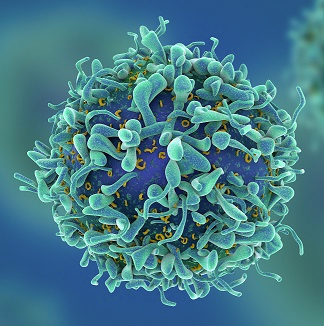More commonly known as an inhibitory cytokine, high doses of interleukin 10 (IL-10) have been shown to lead to the activation and survival of antigen stimulated CD8 T cells. According to a study published in the Journal of Clinical Oncology, the investigators in this first-in-human, phase 1 clinical trial of IL-10 (AM0010), demonstrate antitumor activity and therapy tolerability in a pretreated population. The primary endpoint of the study was to establish safety, tolerability and the maximum tolerated dose. This goal appears to have been met, with a low incidence of adverse events, most of which were temporary or reversible. The dose-escalation study was followed by a renal cell cancer dose-expansion cohort.
Pharmacodynamic assessment that measured immune-activating and -suppressive cytokines in serum showed an increase of IL-18 in treated patients, directly proportional to the drug dose. Increasing dose concentrations also correlated with decreased serum concentration of TGFb and upregulated IFNg and IL-4, indicative of Th1 and Th2 activation. The analyses of protein biomarkers show the systemic immune activation and increase of stimulatory cytokines of AM0010 in cancer patients, and could indicate the use of these assays to predict and monitor responses.
A total of 33 patients participated in the study, of which 18 continued treatments in the RCC expansion cohort. Reduction of tumor burden was seen in 20% of patients in the top two dose-escalation cohorts. Out of 15 patients eligible from the RCC expansion cohort, 4 showed a partial response (27%). The authors suggest that the CD8 T cell stimulatory properties of IL-10 may be useful in combination with other immuno-oncology therapies that block inhibitory mechanisms.
Read the abstract: Safety, Antitumor Activity, and Immune Activation of Pegylated Recombinant Human Interleukin-10 (AM0010) in Patients With Advanced Solid Tumors


